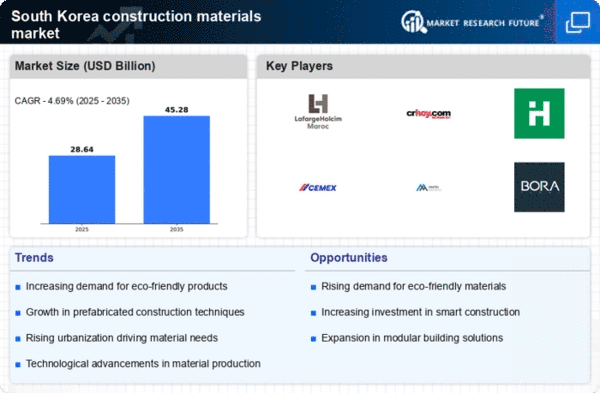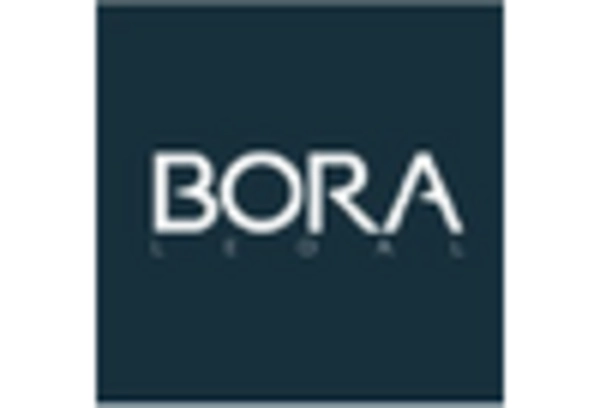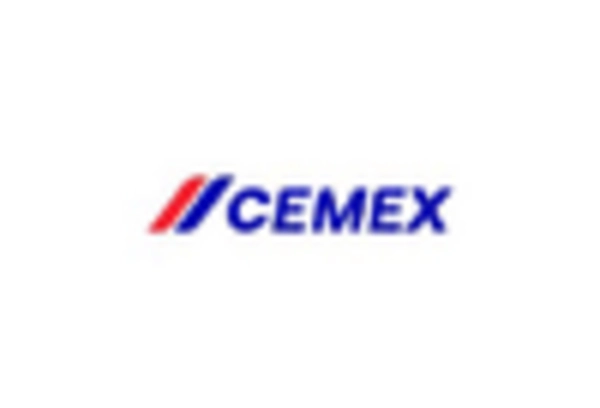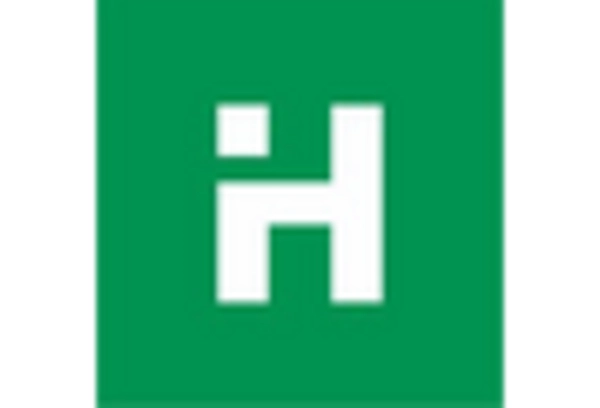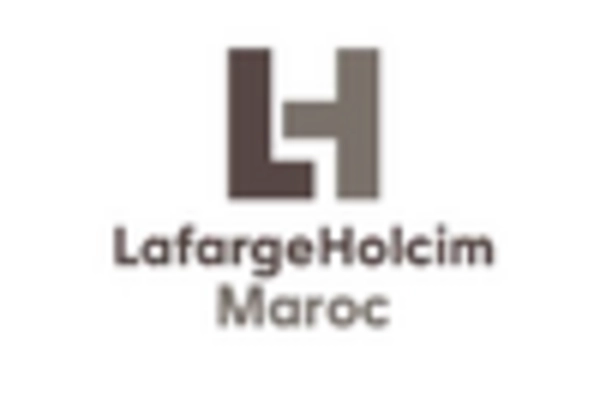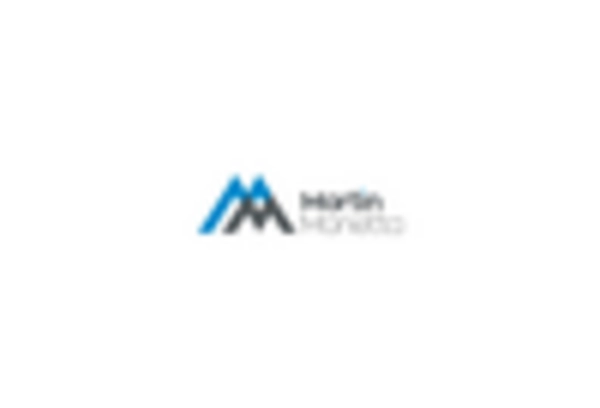The construction materials market in South Korea is characterized by a competitive landscape that is increasingly shaped by innovation, sustainability, and strategic partnerships. Key players such as LafargeHolcim (CH), CRH (IE), and HeidelbergCement (DE) are actively pursuing strategies that emphasize regional expansion and technological advancements. For instance, LafargeHolcim (CH) has been focusing on enhancing its product portfolio with eco-friendly materials, which aligns with the growing demand for sustainable construction solutions. This collective emphasis on innovation and sustainability among major companies is likely to intensify competition, as firms strive to differentiate themselves in a market that is becoming more environmentally conscious.In terms of business tactics, companies are increasingly localizing manufacturing to reduce costs and improve supply chain efficiency. The market structure appears moderately fragmented, with several key players holding substantial market shares. This fragmentation allows for a diverse range of products and services, but it also means that companies must continuously innovate to maintain their competitive edge. The influence of major players is significant, as their strategic decisions often set the tone for market trends and consumer expectations.
In October CRH (IE) announced a strategic partnership with a local technology firm to develop advanced construction materials that utilize recycled content. This move not only enhances CRH's sustainability credentials but also positions the company as a leader in the circular economy within the construction sector. The partnership is expected to yield innovative products that meet the increasing regulatory demands for sustainable building practices, thereby reinforcing CRH's competitive position.
In September HeidelbergCement (DE) launched a new line of low-carbon concrete products aimed at reducing the carbon footprint of construction projects. This initiative is particularly significant as it responds to the growing pressure from both consumers and regulators for more sustainable building materials. By investing in low-carbon technologies, HeidelbergCement (DE) is likely to attract environmentally conscious clients and gain a competitive advantage in a market that is increasingly prioritizing sustainability.
In November LafargeHolcim (CH) unveiled a digital platform designed to streamline the procurement process for construction materials. This platform aims to enhance customer experience by providing real-time data on product availability and pricing. The introduction of such digital solutions indicates a shift towards greater efficiency and transparency in the supply chain, which could potentially reshape customer expectations and purchasing behaviors in the construction materials market.
As of November the competitive trends in the construction materials market are heavily influenced by digitalization, sustainability, and the integration of artificial intelligence. Strategic alliances are becoming more prevalent, as companies recognize the need to collaborate in order to innovate and meet evolving market demands. The competitive landscape is likely to evolve from a focus on price-based competition to one that prioritizes technological advancements, supply chain reliability, and sustainable practices. This shift suggests that companies that can effectively leverage innovation and sustainability will be better positioned to thrive in the future.


